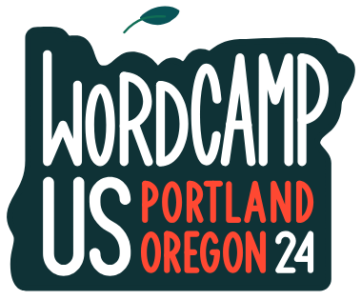Why Unmasking the “Tragedy of the Commons” Matters
This article explains the importance of the previous one, “Unmasking the Tragedy of the Commons” and how it relates to events unfolding within the WordPress community.
Abstract
In his WCUS talk and elsewhere, Matt Mullenweg has built an argument for Five for the Future on the foundation of the Tragedy of the Commons, casually dismissing Elinor Ostrom’s work to affirm the validity of Garrett Hardin’s “TC” theory. This maintains the premise under which he was about to attack WP Engine, that being that they are a “bad actor” for not contributing enough to the project. Actions and philosophies built on this false premise are damaging. Rather than staking the philosophy of an open source project and its ecosystem on Hardin’s fundamentally flawed theory, we need discard it once and for all to build open source communities on a solid foundation. For this reason, we need to excise this notion from our ideas about the economics of free software.
WP Drama on the Stage (and the Docket)
Prelude: WordCamp US 2024
On Friday September 20, 2024, Matt Mullenweg took to the stage in Portland OR to give the closing address, which was to be a Q&A session. He’d just been on the phone with someone at WP Engine, who declined his last-minute offer not to “go nuclear” on them.1 He used the opportunity to do three things:
- Read his blog about “Ecosystem Thinking“, which he describes as “the mindset that separates any old software with an open source license from the software that’s alive, that’s humming with activity and contributions from a thousand places.”
- Tell people how bad WP Engine is because they won’t “do their share” of contributing under his “Five for the Future” program, and because they’re owned by Silver Lake, a private equity firm managing $102 billion in assets.
- Do some Q&A while pointedly ignoring some of the most important things the community was telling him, and challenging him on. His responses tended to all point back to WP Engine and Silver Lake and why they should pay to use the WordPress trademark.
I won’t go over all that’s happened since then — I’m taking for granted that people know about the lawsuit and all the things Mullenweg has been saying and posting in a mad flourish during the weeks after WCUS. There are many summaries and timelines available online, though as it moves into mainstream media, some of the facts don’t always translate properly.
The blog post and the talk/Q&A come across a bit differently when reviewing it a month later. Looking back, you can see a lot of things that point where he’s going, so it’s a lot more clear now what was happening. You can also see a number of inconsistencies and areas where he’s departing from the open source ethos he espouses.
Glossing Over the Questions
Zack Katz spoke for the majority of the community when he accused Matt of “punching down”, telling him we all really wanted to hear a positive talk rather than one of his “demotivating vendettas.”
My favourite part of the talk is the three minutes starting at the 31:30 mark. I was watching the livestream and not in the room, but I understand the speaker is Zack Katz of GravityKit, and what I love here is that he’s perfectly on-point, and I felt he was really speaking for the majority of the community when he accuses Matt of “punching down”, and tells him we all really wanted to hear a positive talk rather than one of his “demotivating vendettas” (applause from the room).
Sadly, Matt essentially misses (or dismisses) all of Zack’s points, interrupting or talking over him and doubling down to call WP Engine a bad actor and a bully. There’s a key moment at the top of the clip when Zack brings up the Tragedy of the Commons being discredited by the work of Elinor Ostrom. Another person returns to that point later, but this exchange in my mind is crucial. Here’s the basic transcript, with my notes interspersed in italics — some of which I was literally saying out loud as I watched the livestream.
KATZ: I wanted to first address the tragedy of the commons which was disproved by Elinor Ostrom and her work…
MULLENWEG (interrupts): I’m familiar with her book, yes. …I wouldn’t say it was disproved… I would say that some of the examples, you know, but but it’s kind of a logical thing you can think of, right, like this field that everyone grazes [but] no one waters, like we can all understand that.
Being “familiar with her book” makes his use of the tragedy of the commons to justify what he’s doing all the more egregious. He may well not think that she disproved it, but the Nobel Committee certainly did when they awarded her the prize in economics for this work in particular. Hardin was discredited for the underlying views which prompted him to write the article, and the university where he was a faculty member denounced his views and these specific writings.
Matt’s “background in macroeconomics” does not establish his bona fides enough to dismiss the work of a Nobel Laureate, and the fact that the example is easy to understand does not validate a discredited theory with no research behind it whatsoever.
Matt later says he has “a background in macroeconomics” (something he’s said before), but he seems to be overstating this, given the background would amount to any college courses he took in the two years before dropping out to work for CNET for a year, then Automattic. That’s his actual background, which I don’t think establishes his bona fides to the point he can dismiss the work of a Nobel Laureate. Matt goes on to suggest that the pasture example is “kind of a logical thing”, but the fact that the example is easy to understand cannot validate a theory which has no research behind it whatsoever. Ostrom actually did the work.
KATZ: (continuing): …we have zero marginal cost of distribution and we have a lot of people who are excited about WordPress, and I wanted to share that when you punch down which…
This is accurate, and relevant to the ways in which software is a commons. The commons is generally a finite resource — even Matt used the example of oil during the session — and its use must be managed carefully. With distribution cost for software approaching zero, the software itself is not diminished by the number of times it is copied and shared. This isn’t the only factor of course, but it’s a significant difference from the natural resource examples.
MULLENWEG (interrupts): I wish I was punching down, I don’t have $102 billion and I’m not talking about only singling out a superadmin sponsor the WordCamp here…
KATZ (continuing): …I’m also talking about personally you’ve in the past punched down with other people who are less powerful than you and I find it…
Matt equates money with power and completely misses the point that he’s the bully.
Matt misses the point completely. Note here that he’s equating money with power, but in fact as events unfold, Matt uses non-monetary power to bully WP Engine.
MULLENWEG (interrupts): …I would now publicly offer if WP engine would like their $75,000 back that they paid to be superadmin sponsor, happy to wire it back…
No idea how this fits into the current context, unless the segue is “Oh yeah, speaking of money…“
KATZ (continues): …I’m suggesting that your — what feels to me — vendettas are demotivating and what I would like…
MULLENWEG (talks over): Yeah, it can be.

Can be? Does he think there’s a way in which a vendetta is not demotivating? I’d have to say if someone finds vendettas motivating, it’s likely a danger sign.
KATZ (continues): …and my personal perspective of what’s going on with WordPress and our stalled market share, what we need to be doing is to be promoting new people coming into WordPress, and I know that so many of us started hacking on WordPress and using WordPress for everything, even things that it really wasn’t well suited for, and we built a whole business on top of that, and we be became who we are today, and I think that in order for WordPress to grow, we need to be encouraging the new generation of people coming into WordPress…
Zack is right again here. Personally I don’t believe WordPress should grow any bigger, as I’ve said before the latest drama. But the description of the community is noteworthy here — a group of hackers and enthusiasts advancing WordPress and building their own businesses on it. A month later, when Automattic responds to the court concerning a motion regarding WP Engine’s statement of claim, he points out that WP Engine built on WordPress and presumed access to wordpress.org at their own risk, and with no guarantees. In other words, it’s their own fault. But as Zack points out here, the bulk of the WP community has done the same thing.
MULLENWEG (interrupts): The good news is it’s growing. So in the past year, we’ve grown an entire Drupal of market share, so it is growing again. So it stalled out for a little bit, but there’s countering forces and there’s a lot of folks including Automattic that have put a ton back into Core. We’ve got a lot of activity and everything, I mean you see it around the room… We’re going to get through this, but I think that we also just need to call out bad actors, and… the only way to fight a bully is to fight them back. If you just allow them to run rampant on the playground, they’re just going to keep terrorizing everyone I think recent…
Matt makes it about market share rather than community, which is not unexpected. Measures of market share seem to have been driving him for some time, as he’s long wanted to reach the point where 50% of all sites are running WordPress.
The worst part of his comments here is that he’s presenting as if he and the community are aligned in this fight (spoiler alert: no, he’s not) against a “bad actor” and schoolyard bully. He’s still missing the point that he’s the bully. WP Engine has not actually cost him anything by copying software with a near-zero distribution cost. Automattic is not diminished, nor is the software.
KATZ (continues): …so what I’m suggesting is if you had used your platform here today to promote meetups and talk about bringing new people into the fold and encouraging us and being positive, that that positivity would spread instead of the negativity…
MULLENEG (interrupting): Well please watch one of my like 82 other WordCamp presentations, that’s what I’ve done at all the others, so this is, I–I really did not want to give this presentation today to be honest, it was terrifying to me.
The end of the exchange here is the community wants Matt to work on positive efforts within rather than going and picking fights.Matt’s response is essentially a final dismissal — he’s given positive talks before. He then makes it about himself, as though this was simply something that had to be done. The community at large disagrees strongly, and Zack voices it here. What he’s asking for is also what Brian Coords and the rest of the community want from a leader. Evidently, they’re not going to get it from this one.
Other WCUS Take-Aways
A variety of other contradictions and notable points came from Matt’s WCUS talk. One was when he referred to the Halloween Documents, and I immediately thought of Bill Gates’ “Open Letter to Hobbyists.” The Halloween Documents are leaked internal Microsoft correspondence from 1998 that show their fear of Linux, despite their public statements about open source.2 Bill Gates’ 1976 open letter, on the other hand, urges hobbyist software developers not to give their work away for free, but demand payment for it. It was already feeling to me like Matt was moving toward a pay-to-play model.
Matt breaks his “ecosystem thinking” into four phases, the last of which is “nourish”, which he claims is the trickiest one where once you’re successful, you’re supposed to “spread the fruits of your labour” around the ecosystem. This is not entirely wrong, however he leapfrogs from this idea to his “Five for the Future” program, saying “This is the philosophy behind Five For the Future, which you’re going to see us emphasize a lot more now.” The problem is that while he’s always said it’s optional, his vision for Five for the Future is not a donation, it’s a demand. WP Engine didn’t give him the response he wanted when he said “donate or else,” and here we are.
Matt mocks Meta for setting a $50k threshold before licensing costs apply to their open license, but goes on to explain that WP Engine is making too much money relative to their contribution.
Matt has talked a lot about the Four Freedoms of the GPL, which are foundational to an open source ethos. Unfortunately, current events are trending toward losing the freedom not to contribute. In his WCUS talk, he goes on a bit about Meta’s open licensing placing a limitation based on revenue. While mocking Meta for undermining open source in this way, he focuses on WP Engine as making too much money relative to their contribution, and asks the community to shun them while he cuts off their access to .org. Meta gives a specific figure after which you have to start paying for the service — Matt does not, but he’s clearly looking around at who is making money with WordPress. The community is wondering if they’ll be next. What Meta is doing essentially gives startups or nonprofits a break, and there are a good many of those available in the software community for nonprofits. After all, their distribution cost approaches zero.
While it’s been established that no other company is paying close to what was demanded of WP Engine, Newfold Digital — formerly Endurance International Group (EIG) — does have a trademark licensing deal in place, with undisclosed details. They are the only company who have such an arrangement, and Matt sings their praise as if he’s completely unaware that EIG has quite a bad reputation among the hosting community. With over 4,000 employees, their annual revenue is about 3.5 times WP Engine’s, so despite Matt’s approval of their contributions, they are still only a fraction of the 5% he’s asking of everyone.
A couple of years ago, it was GoDaddy who Matt deemed “an existential threat” to WordPress. He backed off at the time, and their commitment had actually gone down from two years previous (they’re back slightly above that now) but he still claims it’s “all good” with GoDaddy now, despite their contribution being much lower than 5%.
There are many inconsistencies in the story. Matt begins by saying it’s all about contributing, in the Five-for-the-Future sense, but the Cease-and-Desist he filed with WP Engine seeks a licensing payment for use of the WordPress trademark. Later, he says it’s all about the trademark.
Recalling Al Capone being convicted of tax evasion, Matt tells Theo Browne, “Sometimes you have to use the laws available to you to get someone for their bad behaviour.” Matt seems to be the sole arbiter of what constitutes bad behaviour.
Just days after WCUS, Matt did a live interview with Theo Browne (cited in WP Engine’s lawsuit) as what appeared to be a week-after tour of as many podcasts and video interviews he could schedule in order to try and not just explain, but build support for his actions. (Spoiler: it didn’t work.) The Theo Browne interview is quite significant, because rather than just let Matt say his spiel, Theo did a good job of trying to hold Matt to some things he’s said and to provide clear answers at certain points.
Matt knows he’s penalizing bad behaviour using legal means, and after referencing Al Capone being convicted of tax evasion, he says, “Sometimes you have to use the laws available to you to get someone for their bad behaviour.” (31:24) The sole arbiter of what constitutes bad behaviour seems to be Matt himself. He then says, “I hope to do more of these [trademark deals] in the future, so yes. Would I like to do more of these? Absolutely.” (33:00) Recall what he said in his WCUS talk (and blog post), “[Y]ou’re going to see us emphasize [Five For the Future] a lot more now.” He’s told us what’s coming, and he’s shown us the playbook.
The fact of the matter is we’re just getting started. In what is reminiscent of the tactics of a Patent troll, Matt has filed for trademarks on “Managed WordPress“‘ & “‘Hosted WordPress“, two terms which are already widely used by many web hosts to describe service offerings.
Why it Matters
Matt is quick to measure revenue and WordPress contributions against WP Engine. He doesn’t seem to take public criticism very well (I don’t know how he receives it in private), and his social media posts have at times been referred to as meltdowns in the media — not just over the GoDaddy and WP Engine tirades, but in the fallout over transgender comments on Tumblr and in other public disputes.
In 2022 Mullenweg reportedly said that that he prefers to try matters in the court of public opinion, describing his tactics as brinkmanship, which he prefers to expensive legal action. With WP Engine, he’s getting both, and public opinion is not going his way. Matt is a charismatic and persuasive speaker, so his preference for these tactics playing out in public makes some sense, as the sentiment can be directed to some extent. He’s mishandled this one from the start, but seeing his strongarm tactics should come as a warning to the WP community.
Matt Mullenweg has built his argument for “Five for the Future” and his current crusade to enforce donations upon Hardin’s Tragedy of the Commons, which is a tragic myth.
The crux of it is this: Matt Mullenweg has built his argument for “Five for the Future” and his current crusade to enforce donations upon Hardin’s Tragedy of the Commons. As we’ve seen in Unmasking the Tragedy of the Commons, there is no basis for the argument, and using it to privatize or enclose the commons has had a history of negative consequences. Where there is some applicability to Mullenweg’s WordPress ecosystem is that a successful commons requires governance. The WP community has noticed an inadequate governance structure in the past, but have not made great strides in changing it. Most have discovered only recently that the extent of this lack of governance at the center of the WordPress ecosystem is far more appalling than they had realized.
The tragedy of the commons is a tragic myth that must be discarded.
The tragedy of the commons is a tragic myth that must be discarded if a sound foundation for the ethos of free and open source software is to be well-established. The open source community — and the WP community in particular right now — cannot afford to have philosophies and policies rooted this sham of an economic essay. In returning to some open source roots and revisiting the community ethos, it’s important to expose weak foundations or flawed arguments that may threaten the future stability of the community — its software, its values, its connections, and its economy.
Some are calling for Matt to step down, others for the establishment of a proper governance structure. Based on what we’ve seen and discovered in recent weeks, both are entirely unlikely to happen. Matt is clear that he plans to continue his campaign of contribution-demands and rent-seeking for the use of the WordPress trademark. WP Engine has alleged extortion, and whether they prove it to the court or not, Matt has already been convicted of it in the court of public opinion held by the WP community.

For his part, Matt seems to be on track to become the most controversial figure in the open source community since Richard Stallman himself. His forceful attempts to get WP Engine to comply with his donation “request” feels a bit like a protection racket. “Nice business you got there, be a shame if something happened to it.”3 Five for the Future started as an invitation, but is now being used as a measure of worth to the community, and we’re not particularly free to decline the invitation. It reminds me of a line from The Godfather. You know the one.
Changelog
- First Published Post Date
Notes
- This was reputedly a last-ditch effort in a protracted series of communications where Matt demanded payment of a percentage of WP Engine’s gross revenue, which was steadfastly declined. Matt had threatened to “go nuclear” if they did not comply. ↩︎
- Things have certainly changed — Microsoft has now contributed to the Linux kernel, and Bill Gates recently recommended open source software for “Digital Public Infrastructure”. ↩︎
- Implying too much? Unlikely, since WP Engine can show concrete numbers for the impact upon its business caused by Mullenweg’s crusade against them. ↩︎




Pingback:Unmasking the Tragedy of the Commons – YAWP.foo
Pingback:Free-Riding Free Software – YAWP.foo